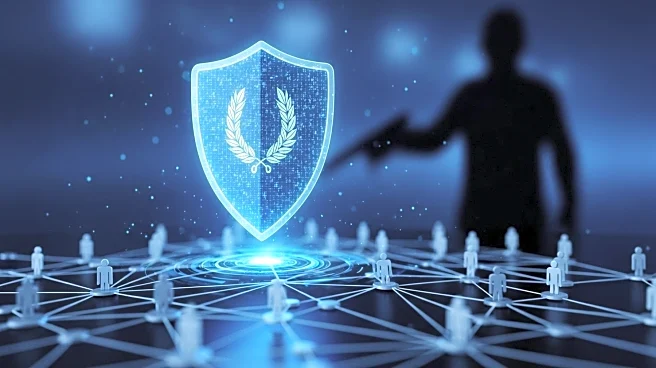What's Happening?
The National Cyber Directorate of Israel successfully thwarted an Iranian cyberattack that targeted IDF veterans and reservists. The attack involved a fake website, nefeshhope.com, which posed as a mental health support service for individuals suffering from PTSD. The site was designed to harvest personal information and install malware on visitors' devices. Officials believe the operation was conducted by a known Iranian hacker group, utilizing techniques and patterns consistent with previous campaigns. The site has been taken offline, but authorities warn of potential future attempts using alternative methods.
Why It's Important?
This incident highlights the ongoing cyber threats faced by military personnel and veterans, emphasizing the need for robust cybersecurity measures. The attack aimed to exploit emotional vulnerabilities, demonstrating the sophisticated strategies employed by Iranian cyber groups. Protecting sensitive information and maintaining the integrity of support services for veterans is crucial for national security and the well-being of affected individuals. The thwarted attack underscores the importance of vigilance and proactive cybersecurity efforts to prevent data breaches and protect against malicious activities.
What's Next?
Authorities remain vigilant and are monitoring for similar cyber threats. The National Cyber Directorate continues to enhance its detection capabilities to prevent future attacks. Public awareness campaigns may be initiated to educate individuals on recognizing and avoiding phishing attempts and fraudulent websites. Collaboration with international cybersecurity agencies could be strengthened to address the broader implications of such cyber threats.
Beyond the Headlines
The use of emotional manipulation in cyberattacks raises ethical concerns about the exploitation of vulnerable populations. It also highlights the intersection of psychological warfare and cybersecurity, prompting discussions on how to protect individuals from such tactics. The incident may lead to increased scrutiny of cybersecurity practices and policies, particularly concerning the protection of veterans and military personnel.









